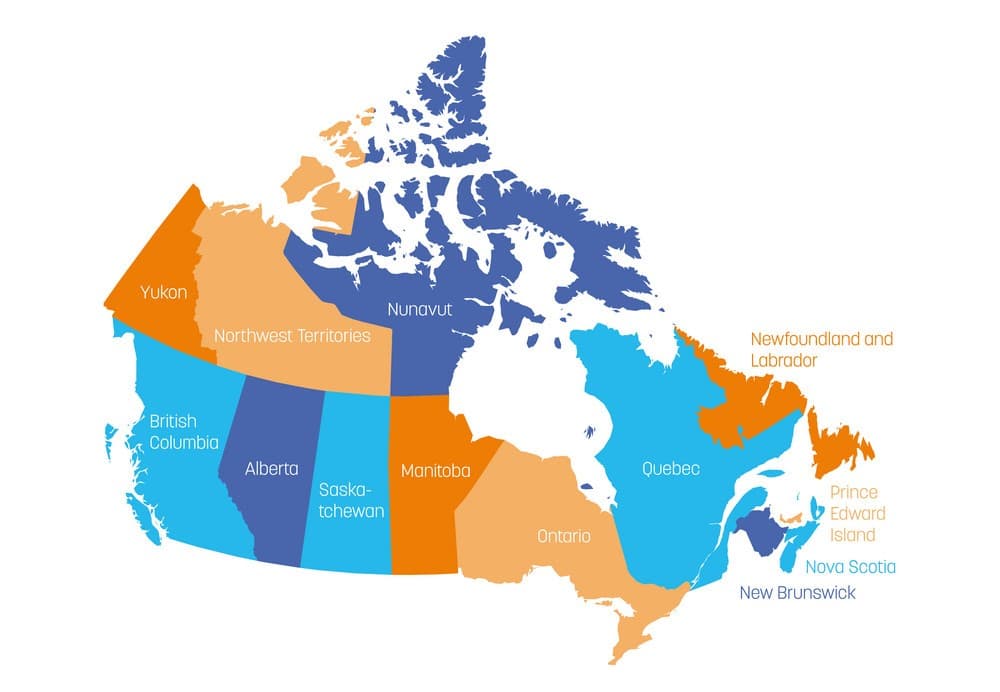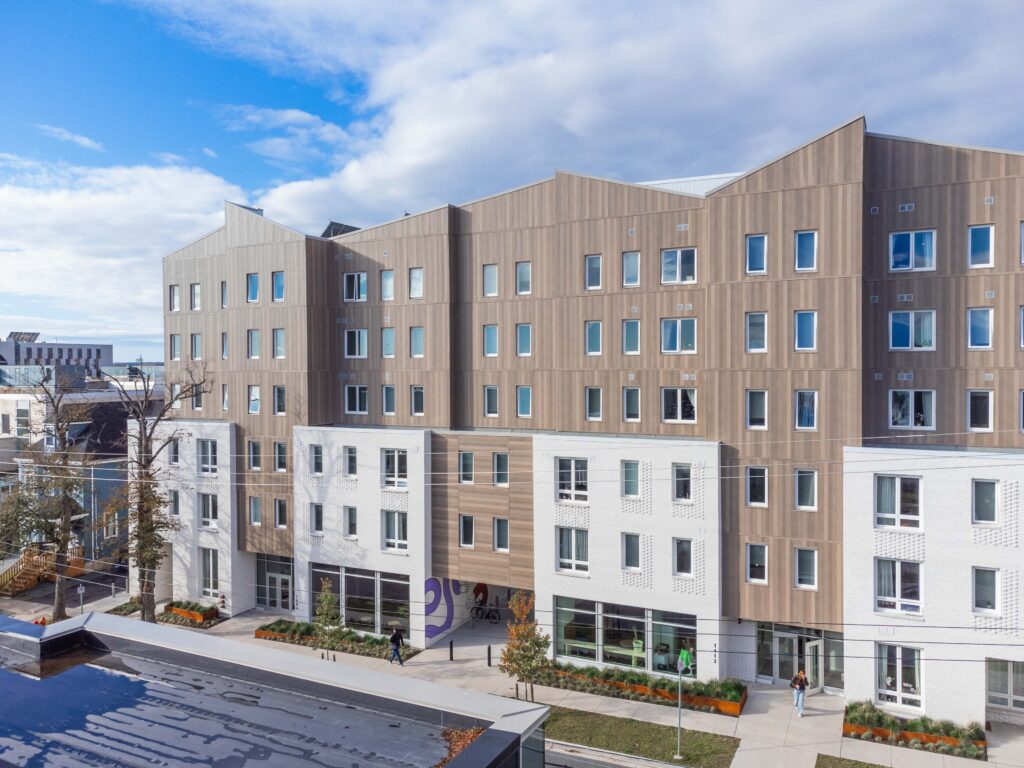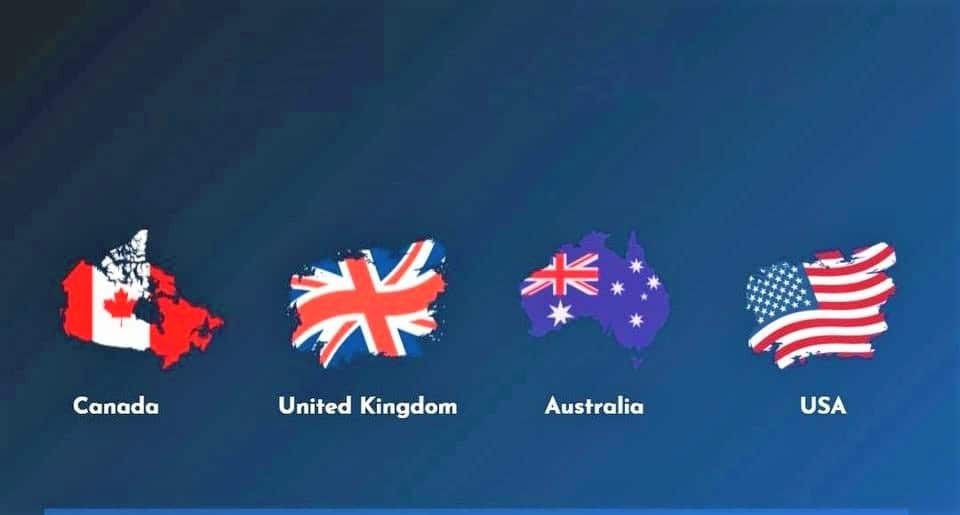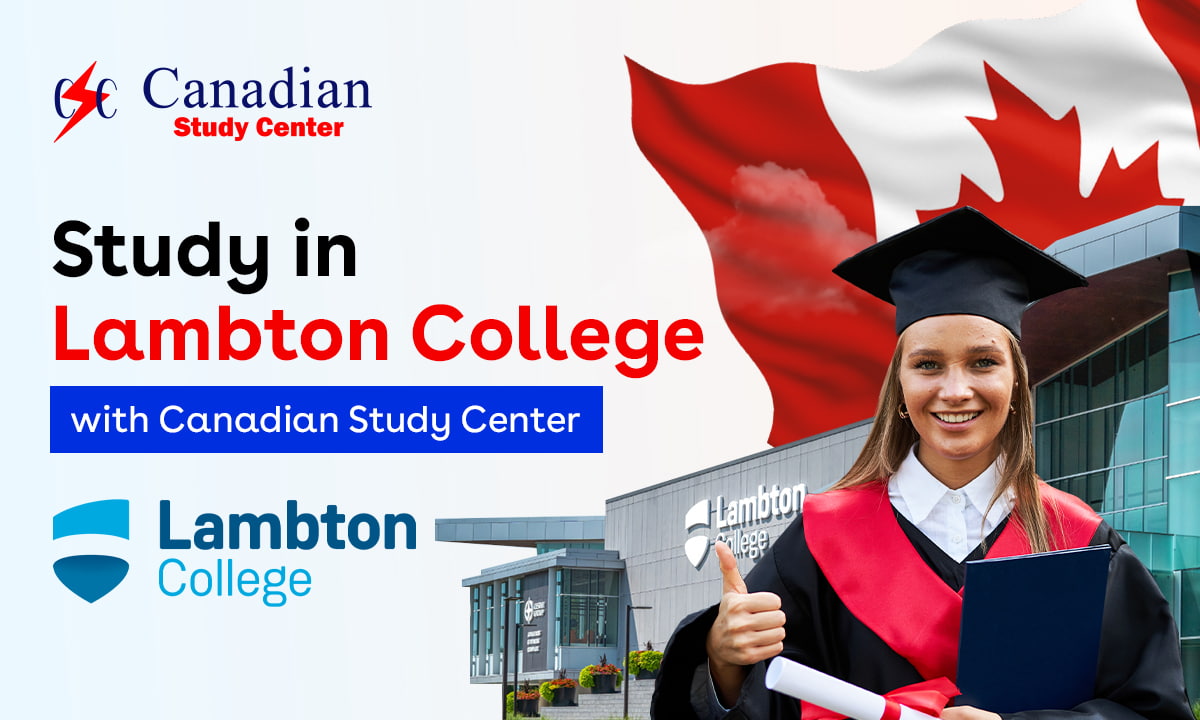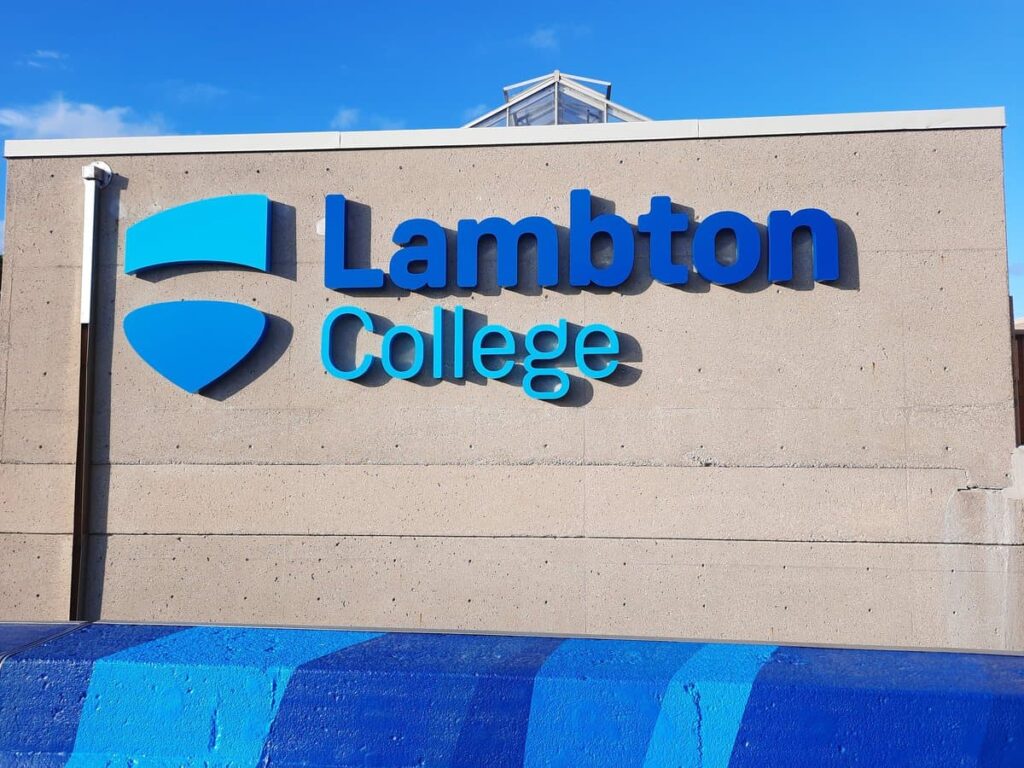Are you planning to study in Canada? Canada has become a major destination for international students in terms of education. Canada offers a diverse range of programs, to choose from various institutions including universities, colleges, and schools. The degrees obtained from educational institutions in Canada are recognized globally.
English and French are the official languages, and most universities offer courses in both languages. Canada also, offers scholarships and funding options, such as the Canada Student Grant, to help students pursue their academic goals.
Introduction
To study in Canada, international students typically need to obtain a study permit, which requires a valid student visa. The process involves submitting an application, providing proof of acceptance from a Designated Learning Institution (DLI), and demonstrating sufficient funds to support living expenses in Canada without hindering the family’s life back home.
Generally, the total cost to study in Canadian educational institutions are comparatively lower than those in various English-speaking countries. The tuition fees vary according to the chosen course, province, and institution. For international students, the undergraduate programs can range from 15,000 CAD to 30,000 CAD, on average per annum while graduate programs range from 17,000 CAD to 30,000 CAD, on average per annum.
Canada has three main study intakes September, January, and May. Student life in Canada offers a unique blend of academic rigor, cultural diversity, and outdoor activities. Most colleges and universities offer semester breaks, during each semester which will allow students to explore the beauty of Canada and join internship programs.
In Canada, the international student’s work limit varies depending on your visa and study program. International students can legally work up to 20 hours per week during the academic session and full-time during scheduled semester breaks. Some programs, like internships or practicums, may have specific work requirements. It’s essential to check with your institution’s international student office or immigration authorities to determine, your specific work eligibility and any other limitations that may apply.
Canada offers everything one can imagine from quality education to a pathway for permanent residency. Thus, Canada has become a major hub for education among international students, during the past few years.
Benefits of Studying in Canada

Why study in Canada among other English countries? Well, Canada welcomes hundreds and thousands of students from around the globe every year. International students including Nepalese students believe that studying in Canada is investing in your future. Canadian education is recognized globally despite being affordable compared to other English-speaking countries.
Canada offers quality education, post-graduation work opportunities, quality of life, and a pathway to permanent residency. Thus, it is no surprise that it has become a leading study destination among, international students including Nepalese students.
Here are some points on why studying in Canada can become a perfect choice for you.
1. Quality Education
Canada is known for providing quality education at a reasonable cost compared to other English-speaking countries. Due to its quality education Canadian degrees are accepted globally. Canadian universities are ranked among the top 200 in the world according to Times Higher Education 2023.
Canada offers a range of programs to choose from through various educational institutions, colleges, and universities. These colleges and universities are mainly focused on providing practical education and real-world implementations through various internship and co-op programs.
2. Diversity
Canada is also called a mosaic due to its ethnic and cultural diversity. The term mosaic reflects the country’s commitment to diversity and multiculturalism. Canada consists of various ethnicities and cultures which makes it a diverse and multicultural nation.
It is also considered one of the safest places to live in among various countries. Canada is peaceful, safe, and culturally diverse at the same time making it one of the most preferred countries to live in. You will feel welcomed in the country as well as at the chosen university or college itself.
3. Affordable Education
Canada is known for offering quality education in an affordable fee structure compared to many other English-speaking countries. You can even access various scholarships and work opportunities to ease the financial burden.
Many universities and colleges in Canada offer internships and co-op placements to gain hands-on experience while studying.
4. Quality of Life
Canada is known for its quality of life. This country offers a quality of life not only to Canadians but to international students as well. International students can benefit from the same rights and freedom that protect all Canadians.
Canada ranks in third place globally for the quality of life according to the U.S. News & World Report, 2022. Thus, making it the perfect country to live and study among the other English-speaking countries.
5. Long-Term Return on Investment
Canadian education offers a long-term return on the investment in tuition fees as Canadian degrees are recognized worldwide. Whether you decide to stay in Canada or return to your home country, your Canadian degree and network, help prepare you for your future.
Canadian education and work experience also help international students on the pathway to permanent residency. After graduating and working for a few years international students can apply for permanent residency as per the laws and rules set by the provenance.
Top Universities and Colleges to Study in Canada

If you choose to study in Canada, you will get the opportunity to enroll in one of the best colleges and Universities in the world. Canada consists of over 90 publicly funded universities and more than 150 publicly funded colleges.
Canada is renowned for its excellent education system, with numerous top-ranked universities and colleges. According to Times Higher Education 2023, Canadian universities are ranked among the top 200 in the world.
Here is the list of top universities in Canada:
- The University of Prince Edward Island (UPEI)
- Lakehead University
- Kwantlen Polytechnic University
- Laurentian University
- The University of Lethbridge
1. The University of Prince Edward Island (UPEI)
UPEI (The University of Prince Edward Island) is a prestigious university that offers programs for Nepalese students at reasonable tuition costs. The University of Prince Edward Island (UPEI) provides a wide range of academic programs including veterinary medicine, sustainable engineering, nursing, business, and environmental studies, providing international students with higher education and meaningful research experience.
UPEI’s strong industry partnerships provide international students with rewarding learning opportunities, hands-on experiences, internships, and research collaborations that provide important professional connections and enhance their career prospects.
2. Lakehead University
The Lakehead University is a public research university offering undergraduate and bachelor’s programs to international students. Lakehead offers genuine, real-world experiences in the latest and modern facilities and labs. The university promotes student experience, including comprehensive guidance services, extracurricular activities, and a strong feel of network.
Additionally, Lakehead University emphasizes a worldwide angle, offering worldwide study reviews, change applications, and a campus environment that celebrates cultural diversity.
3. Kwantlen Polytechnic University
Kwantlen Polytechnic University (KPU) is Canada’s only polytechnic university, providing students with an excellent education paired with practical experience. This university offers over 100 unique programs for international students to choose from.
KPU has formed partnerships with industry employers, providing students with valuable contacts and practical knowledge. These interactive and hands-on learning opportunities are known for equipping students with the skills and knowledge they need to succeed in the industry.
4. Laurentian University
Laurentian University is a medium-sized public University offering a range of undergraduate and graduate programs.
This university provides international students including Nepalese students with a wide range of programs and hands-on learning opportunities. The university provides entrepreneurial fellowships as well as experiential learning opportunities like work experience, internships, and cooperative education through its many programs.
5. The University of Lethbridge
The University of Lethbridge provides over 150 undergraduate programs, 75 graduate courses, and hands-on learning experiences such as workshops, courses, internships, and study tours. It also collaborates with industry partners to provide students with learning and work-integrated work experiences.
The institution ensures an efficient student experience and prioritizes Nepalese students by offering services such as academic advising and guidance. This demonstrates the University’s commitment to providing a supportive and positive learning environment for its diverse student group.
Top Ranked Public Colleges in Canada
Here is the list of top public colleges to study in Canada:
- Mohawk College
- Saskatchewan Polytechnic
- Old’s College
- Seneca Polytechnic
- Lambton College
- Red River College
- Loyalist College
- Lethbridge College
- Fanshawe College
- MITT College
- Georgian College
- Algonquin College
1. Mohawk College:
Mohawk College is ranked as the 7th best research public college in Canada, offering a wide range of programs for international students including Nepalese students. The college collaborates with industries to provide students with hands-on learning experiences and placement opportunities. Emphasizing a commitment to applied research, Mohawk College fosters an inclusive and supportive student experience, aiming to provide a well-rounded and enriching educational environment for its diverse student body.
2. Saskatchewan Polytechnic
Saskatchewan Polytechnic is a top-ranked public institution in Canada that offers over 65 student programs, spanning various fields such as agriculture, architectural technologies, artificial intelligence, and automotive programs.
The college provides hands-on learning opportunities and apprenticeship training in diverse economic sectors to equip students with practical skills. The college offers an extensive program designed to lead students to rewarding careers in business, information technology, health, and various other fields. Additionally, the institution is committed to supporting the holistic student experience, providing adjustment support for international students, and creating a conducive learning environment in the province of Saskatchewan.
3. Olds College
Olds College of Agriculture and Technology is a top-ranked public college in Canada, known for its foundational partnerships with industries. Moreover, Olds College offers hands-on learning experiences in its Agriculture Technology Programs, aligning students with the skills required to transform the agriculture industry. The college emphasizes a unique student experience by creating advanced learning environments that connect students with real-world opportunities, enhancing their educational journey.
4. Seneca Polytechnic
This college offers a wide array of programs tailored to Nepalese students, with a diverse learning environment and exceptional student services. It is also known as a prominent public college in Canada.
Seneca Polytechnic offers hands-on learning opportunities, incorporating real projects in purpose-built labs and fostering industry-relevant skills. Furthermore, the college emphasizes a holistic student experience, emphasizing partnerships with industry leaders and providing an educational environment that goes beyond traditional learning to offer a comprehensive and practical approach.
5. Lambton College
Lambton College offers a diverse range of programs tailored for students including Nepalese students. The college provides hands-on learning experiences through comprehensive lecture and laboratory components, ensuring practical skill development. The college’s commitment to hands-on learning approaches fosters a supportive and enriching student experience, equipping students with essential communication skills and confidence for their professional growth.
6. Red River College (RRC Polytech)
Red River College, offers full-time programs and specialized educational services for students. The college actively collaborates with industries to provide hands-on learning experiences and practical knowledge, ensuring students are well-prepared for the real-world workforce.
The college’s unique educational model also integrates work-integrated learning, providing relevant work experience and industry-focused opportunities. This comprehensive approach aims to nurture a supportive and enriching student experience, ultimately preparing students for successful careers.
7. Loyalist College
Loyalist College emphasizes experiential hands-on learning opportunities through applied research. The institution offers tailored programs for students, providing an ideal combination of academic excellence and program work placements. With extensive industry experience, the faculty members offer valuable insight into various fields.
Additionally, the student experience is characterized by a supportive and multinational learning environment, facilitating academic excellence and a range of extracurricular activities.
8. Lethbridge College
Lethbridge College is a highly respected public college in Canada. The college provides specific programs designed for students including Nepalese students, aiming to cater to their unique educational needs.
The institution is committed to offering an enriching student experience, providing knowledge and hands-on experience to excel in their educational journey and future careers.
9. Fanshawe College
Fanshawe College, a top-ranked public college in Canada, offers an extensive range of over 220 programs for international students including Nepalese students. The college is committed to providing hands-on and industry-relevant learning experiences, preparing students for professional success. Fanshawe College ensures that students have access to practical and innovative initiatives that align with their career goals.
The college also provides an exceptional student experience with flexible program options, allowing students from over 100 countries to live, study, and work in a multicultural environment in London, Ontario, Canada.
10. Georgian College
Georgian College, offers career-focused programs across a wide variety of fields and disciplines. The college provides specific programs tailored for international students, encompassing hands-on learning experiences and real-world work opportunities. Georgian College actively collaborates with industry and community partners, offering relevant, cutting-edge curriculum and high-quality job placements, ensuring students gain industry-relevant skills and knowledge.
The student experience at Georgian College emphasizes small class sizes, practical learning, and a supportive environment tailored to help students graduate job-ready and equipped with specialized skills valued by employers.
11. Algonquin College
Algonquin College is a highly regarded public institution in Canada, offering a wide array of programs. The college provides tailored programs for Nepalese students and has established strong partnerships with industries, offering hands-on learning experiences and industry-relevant skills.
The student experience at Algonquin College is characterized by a focus on experiential and digitally connected learning, providing students with practical exposure and preparation for leadership roles. Additionally, Algonquin’s homestay program is managed in partnership with Canada Homestay Network, contributing to a diverse and immersive international student experience.
Factors to consider when choosing a College/ University to study in Canada

When choosing a college or university to study in Canada, there are several factors to consider along with whether the chosen College or University aligns with your academic goals and career aspirations. Here are some of the factors that should be considered when choosing a college or uni in Canada.
1. Program of Study
You must ensure that the College or University you have chosen offers a program that matches your career aspirations. The chosen program’s course content must align with your interests and should be well-recognized by the government.
2. Location
The location can determine the cost of living, career opportunities, part-time work options, climate, and lifestyle even though the urban location offers comparatively more opportunities but comes with a higher cost of living.
3. Reputation and Accreditation
Before choosing a college or university one must research the reputation of the institution particularly in the chosen field of study. You have to make sure that the chosen institution is accredited by the relevant professional bodies.
4. Tuition Fees and Financial Aid
Make sure to compare the tuition fees of the institutions with the other relevant institutions so that you can choose the best option. Research about the scholarships and grants that you can get from the university or college which can ease your burden of finances in the long run.
5. Campus Facility and Resources
Make sure to look into the campus facilities such as libraries, laboratories, accommodation, sports, and recreational facilities to ensure they meet your needs. So, that you would be able to take full advantage of your campus life.
6. Class size and faculty
Smaller class sizes often mean you will have more personalized attention from the instructors. Make sure to check student to student-to-faculty ratio to make your study journey more fruitful and fulfilling.
7. Co-op and Internship Opportunities
Institutions that offer co-op programs or internships can provide valuable work experience and enhance your employability after graduation. Choosing an institution offering it can aid in your employability in the future as well.
8. Postgraduation Employability History
It is better to Investigate the employment rates of graduates and the career services available in the chosen institution to help students transition into the workforce.
Steps to apply for a study permit to study in Canada

After deciding to study in Canada and choosing your desired institution few steps need to be completed to apply for a study permit in Canada. Here are the steps that need to be fulfilled to apply for a study permit in Canada.
1. Get a Letter of Acceptance
Firstly, you need to apply to a Designated Learning Institution (DLI) in Canada and receive a letter of acceptance. Make sure to ensure that your chosen program is eligible for a Post-Graduation Work Permit (PGWP) if you plan to work in Canada after graduation.
2. Check Eligibility Requirements
To be eligible for a study permit, you must have a valid acceptance letter from a DLI. Secondly, you must be able to prove that you have enough funds to cover tuition fees, and living expenses for yourself and any family members coming with you. You should be a law-abiding citizen with no criminal record (you may need to provide a police clearance certificate). You should be in good health and willing to undergo a medical examination if required. Last but not least convince the immigration officer that you will leave Canada when your permit expires.
3. Gather Required Documents
First, don’t forget to fill out, double-check, and complete the visa application form. Attach a Letter of Acceptance from your DLI, along with proof of financial support, such as bank statements, proof of scholarships, or a letter from someone providing financial support. You should hold a valid passport or travel document. Remember to submit passport-sized photographs that meet Canadian requirements. Additionally, include your Statement of Purpose (SOP), police certificates, medical exams (if applicable), and proof of payment for the visa application fee.
4. Give Biometrics
You will receive instructions on how and where to give your biometrics after submitting your application.
5. Medical Examination
If requested, you may need to undergo a medical examination with a panel physician approved by IRCC. You will receive instructions after submitting your application.
6. Processing Time and Study Permit Decision
The processing time for a study permit varies depending on the country. You can check current processing times on the IRCC website. During this time, the IRCC may request additional information or documents. Once approved, you will receive a Port of Entry (POE) Letter of Introduction.
Most Popular Academic Programs to Study In Canada

Canada is a beacon for academic excellence, offering diverse programs across its globally recognized educational institutions. The nation’s emphasis on quality education, cultural diversity, and affordability makes it a top choice for international students.
Here are some of the most popular academic programs to study in Canada that consistently attract students worldwide.
1. Engineering and Technology
Canada’s engineering and technology programs are among the best globally, offering specializations such as software, civil, mechanical, and environmental engineering. These programs emphasize innovation, practical learning, and real-world applications.
2. Business Administration
Business schools in Canada, provide top-tier education with an emphasis on global business strategies and leadership. Popular fields include finance, marketing, entrepreneurship, and international business. Graduates enjoy high employability rates, often securing positions in multinational companies.
3. Health Sciences
Programs in nursing, medicine, pharmacy, and public health are highly sought after, thanks to Canada’s world-class healthcare system and research facilities. Various institutions are known for their rigorous curricula and hands-on training opportunities.
4. Computer Science and IT
With a booming tech industry, Canada offers excellent programs in computer science, data analytics, artificial intelligence, and cybersecurity. Various universities collaborate closely with tech giants, providing students with internships and co-op placements.
5. Hospitality and Tourism
Canada’s reputation as a global tourism hub has boosted demand for hospitality management programs. Colleges like George Brown and Centennial offer specialized courses in hotel management, event planning, and culinary arts.
6. Environmental Studies
Given Canada’s commitment to sustainability, programs in environmental science, forestry, and renewable energy are gaining popularity. Institutions like the University of British Columbia and Lakehead University lead in eco-focused research and innovation.
7. Creative Arts and Design
Fields like graphic design, animation, film production, and fashion design thrive in Canada, supported by institutions like Sheridan College. These programs combine technical training with creative exploration, preparing students for dynamic careers.
8. Law and Legal Studies
Canadian law schools are globally respected, offering programs in common law, international law, and legal research. Students benefit from Canada’s multicultural society and focus on human rights, making this a preferred destination for legal studies.
9. Education and Teaching
Education programs in Canada are structured to prepare students for diverse teaching environments, emphasizing inclusivity and modern pedagogical methods.
10. Social Sciences and Humanities
Fields such as psychology, sociology, political science, and history attract students interested in understanding and contributing to society. Programs often include internships and research opportunities.
Canada’s commitment to quality education, combined with a welcoming and multicultural environment, ensures a rewarding academic journey. Selecting the right program is the first step toward a successful future.
11. Agriculture and Food Sciences
Canada is a leader in agricultural research and food technology, offering programs that focus on sustainable farming, agribusiness, and food innovation. Institutions like Olds College excel in providing hands-on training and research opportunities in these fields.
12. Media and Journalism
With the rise of digital media, programs in journalism, broadcasting, and digital marketing are highly popular among students. Various universities are known for their state-of-the-art facilities and industry-relevant curriculum.
13. Architecture and Urban Planning
Programs in architecture and urban design combine creative and technical skills, focusing on sustainable and innovative designs. Schools like the University of British Columbia offer world-class education in this field.
14. Natural Sciences
Programs in physics, chemistry, biology, and mathematics are foundational to Canada’s strong research reputation. Canadian universities prioritize practical applications and provide research opportunities through partnerships with industries and government organizations.
15. Psychology and Mental Health
As mental health awareness grows, psychology programs are increasingly in demand. Canadian universities, such as McGill University, provide robust undergraduate and postgraduate courses that blend theory with clinical practice.
16. International Relations and Political Science
With its diverse and multicultural society, Canada is an ideal place for studying international relations and political science. Programs focus on global diplomacy, public policy, and. conflict resolution, providing students with insights into global challenges.
17. Data Science and Analytics
With the world moving toward a data-driven future, Canada offers specialized programs in data science, big data, and business analytics. Canadian institutions prepare students to tackle real-world challenges using data insights.
18. Education in Sustainability
Given the global focus on sustainability, programs addressing environmental policies, green technology, and sustainable development are thriving in Canada. Schools like the University of Saskatchewan are leaders in this field.
19. Philosophy and Liberal Arts
Programs in liberal arts, including philosophy, history, and literature, are designed to enhance critical thinking and cultural understanding. They are popular among students who aspire to pursue careers in academia, writing, or cultural organizations.
20. Sports Management and Physical Education
With Canada’s strong emphasis on sports and fitness, programs in sports management, kinesiology, and physical education attract students interested in athletics and health sciences.
Why Choose to Study in Canada?
Canada’s academic ecosystem provides more than just quality education; it fosters a holistic learning experience that nurtures students’ academic, personal, and professional growth. Beyond the classroom, students benefit from world-class infrastructure, cultural diversity, and a globally respected reputation for innovation and research. Let’s delve deeper into what makes studying in Canada a transformative decision.
Top Reasons to Study in Canada

1. High-Quality Education
Canada’s universities consistently rank among the top global institutions. Degrees from Canadian universities are internationally recognized, making graduates competitive in job markets worldwide. Moreover, Canadian institutions emphasize a hands-on, practical approach to education through co-op programs and internships, ensuring students are workforce-ready.
2. Affordable Education Options
Compared to other leading destinations like the U.S., the U.K., and Australia, Canada offers more affordable tuition rates without compromising on quality. On top of that, scholarships, grants, and work-study programs help reduce the financial burden for students.
3. Post-Graduate Opportunities
The Post-Graduation Work Permit (PGWP) allows graduates to gain valuable work experience in Canada. This, combined with Canada’s growing economy and welcoming policies, makes it easier for students to transition into permanent residency if they choose to stay.
4. Cultural Diversity
Known as a cultural mosaic, Canada is one of the most diverse nations globally. For international students, this means a welcoming environment where people from various backgrounds coexist harmoniously. Universities and communities actively celebrate multiculturalism, making Canada feel like a second home.
5. Work While You Study
Canada permits international students to work part-time during the academic year (up to 20 hours per week) and full-time during scheduled breaks. Some programs also offer mandatory co-op or internship placements, allowing students to earn while gaining relevant experience.
6. Scenic Beauty and Vibrant Student Life
Canada’s natural beauty is unparalleled, from the Rocky Mountains to serene coastlines. Students can enjoy outdoor activities like hiking, skiing, and kayaking during their breaks. Additionally, universities and colleges host vibrant student communities, offering clubs, events, and support systems to ensure an engaging campus life.
7. Safety and Stability
Ranked as one of the safest countries in the world, Canada provides international students with peace of mind. Students benefit from a secure environment, universal healthcare, and robust student support systems.
How to Get Started with Studying in Canada?

If studying in Canada is on your academic radar, here are the key steps to start your journey:
1. Choose the Right Program and Institution
Selecting a program aligned with your career goals is crucial. Research universities and colleges, keeping factors like program accreditation, co-op opportunities, location, and campus facilities in mind.
2. Meet Admission Requirements
Each institution has specific academic and language proficiency requirements. Most programs require IELTS or TOEFL scores for proof of English proficiency. Some universities also accept French language tests, depending on the region.
3. Apply for a Study Permit
A study permit is essential for international students. Gather the required documents, including a letter of acceptance from a Designated Learning Institution (DLI), proof of financial support, and other identification paperwork. Once submitted, you’ll also need to provide biometrics and, in some cases, undergo a medical examination.
4. Explore Financial Aid and Scholarships
Investigate scholarships and bursaries offered by institutions or external organizations. Popular funding options include the Canada Student Grant, university-specific scholarships, and country-based awards tailored for international students.
5. Prepare for Arrival
Once your study permit is approved, it’s time to plan your move. Research housing options (on-campus or off-campus), health insurance, and transportation. Most universities also offer orientation programs to help international students settle in.
Transforming Dreams into Reality

Life After Graduation in Canada
One of the most significant advantages of studying in Canada is the opportunity to stay and work after completing your studies. The PGWP lets graduates gain Canadian work experience, which can be a stepping stone to permanent residency. Canada’s immigration-friendly policies ensure that graduates have a clear pathway to build their lives in the country.
Long-Term Career Growth
Graduating from a Canadian institution provides students with not only academic knowledge but also a professional edge. Employers value the practical skills and diverse perspectives gained from studying in Canada. Whether you decide to return home or pursue a global career, a Canadian education opens doors to endless possibilities.
Networking Opportunities
Studying in Canada connects you to a global network of peers, professors, and industry leaders. Many institutions host career fairs, networking events, and mentorship programs to guide students toward their professional goals.
Make Canada Your Destination for Excellence
Canada’s education system is designed to empower students, offering a balance of academic excellence and real-world exposure. Its global reputation, combined with a welcoming atmosphere, ensures international students can thrive academically and personally.
Whether you aspire to innovate in technology, lead in business, or create solutions for global challenges, Canada provides the foundation to achieve your dreams. Begin your journey today and make Canada your gateway to a brighter future.
Conclusion
Canada can be a transformative opportunity for Nepali students. Renowned for its top-notch education system, diverse program offerings, and inclusive atmosphere, Canada offers the perfect environment for academic excellence, personal growth, and a promising future.
Thorough research and planning are key to making the most of this opportunity before choosing the right college or university. To guide you through this journey and ensure a smooth transition, Top Consultancy for Canada, Canadian Study Center is here to support you every step of the way.























